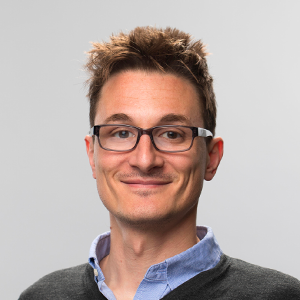Luca Mazzucato is assistant professor of biology and mathematics at the University of Oregon. His lab investigates the neural mechanisms of optimal performance in decision-making and sensory perception, and develops brain-computer interfaces to improve cognitive function in primates.
Mazzucato obtained his Ph.D. in theoretical physics at the International School for Advanced Studies (SISSA) and worked on string theory for several years before switching to neuroscience. He was a Swartz Fellow in Theoretical Neurobiology and a research scientist at Columbia University’s Center for Theoretical Neuroscience. He started his lab at the University of Oregon in 2018.
He is the recipient of a National Science Foundation CAREER Award and numerous National Institutes of Health awards. He also runs the Science and Comics Initiative at the University of Oregon, where he works with comic artists to explain neuroscience.



